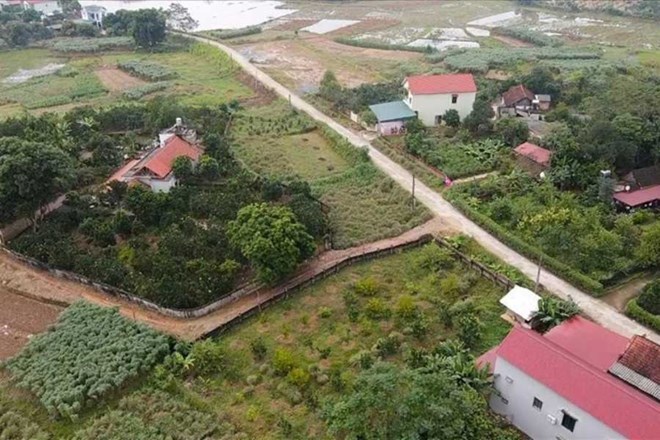The phenomenon of large differences between starting prices and winning prices in many localities has appeared
The Ministry of Agriculture and Environment (MONRE) has just sent a report to the Ministry of Finance to serve the meeting of the Steering Committee for Price Management in the second quarter of 2025.
Forecasting the development of land prices in the third quarter and the whole year of 2025, the Ministry of Agriculture and Rural Development believes that the current land price list is built according to the 2013 Land Law and guiding documents for implementation, which are controlled by the Government's land price framework - the regulation has been abolished according to the 2024 Land Law.
The removal of the land price framework along with new regulations on price lists has contributed to expanding the management and development of the real estate market in a transparent direction, approaching market prices. The increase in land prices will benefit the budget, creating consensus with people subject to land acquisition.

However, the Ministry of Agriculture and Rural Development affirmed that some localities have not promptly monitored common land price fluctuations in the market, leading to the land price list being significantly lower than the actual price.
The phenomenon of large differences between starting prices and winning prices in many localities has appeared, raising concerns about taking advantage of auctions for profit, disrupting the market and negatively affecting the investment, business and real estate market environment.
Regarding the new regulations in the 2024 Land Law, the Ministry of Agriculture and Rural Development stated: the decentralization and delegation of authority policy in determining and deciding on land prices has initially been effective, contributing to the liberation of land resources, promoting the disbursement of public investment capital.
However, many localities are facing difficulties due to lack of human resources and experience, not having fully issued necessary guiding documents such as economic - technical norms, organizational structure, data, etc., leading to slow implementation of the Law and affecting land access and handling administrative procedures.
The Ministry of Agriculture and Rural Development predicts that when localities simultaneously issue new land price lists according to the 2024 Land Law, land prices will have large fluctuations with different frontages between localities, causing many impacts on the market.
Proposing many solutions
The Ministry recommends many solutions for land price management and operation in the third quarter and the whole year of 2025.
In particular, it is necessary to organize the implementation of the Prime Minister's direction on promoting the sustainable development of the real estate market. Effectively implement Conclusion No. 77 of the Politburo, monitor land price fluctuations and build a database associated with land data.
The People's Committees of provinces and cities direct the review of land price lists; if the price is not suitable, it needs to be adjusted according to local reality according to the provisions of Article 17 of Decree 71/2024 applicable until December 31, 2025.
Review land use rights auctions, strictly handle violations, and prevent auction profiteering. Strengthen the review and updating of the system of legal documents on prices.
Review related Laws such as the Housing Law, the Real Estate Business Law, the Bidding Law... to ensure consistency and unity; promote interconnected administrative procedures and full online public services.
Expand the scope of application of land price lists, narrow cases of determining specific land prices. Clarify the responsibilities of agencies in calculating financial obligations related to land.
Inspect, check and strictly handle cases of intentional delay in housing projects, tax evasion, incorrect declaration of transfer prices, violations in auctions...
Localities need to publicize planning, adjust land price lists, and announce deposit cancellation subjects to limit auction manipulation.
Speaking with Lao Dong, Associate Professor, Dr. Nguyen Dinh Tho - Deputy Director of the Institute of Strategy and Policy on Agriculture and Environment (Ministry of Agriculture and Environment) said that land valuation always faces many different pressures. On the one hand, it is necessary to bring the land price framework and land price list close to the market price, in accordance with the provisions of the Land Law. On the other hand, it is necessary to consider the ability of businesses to access land and reduce costs for people when paying taxes and fees. These two pressures create a difficult problem for management agencies.
According to Mr. Tho, when the People's Committees of provinces build land price lists, they must carefully consider between increasing land prices to suit the market and controlling land prices to increase access to land, support businesses and reduce costs for people. Finding a reasonable balance between these two factors is the "key" to perfecting the land valuation system, contributing to sustainable socio-economic development.











